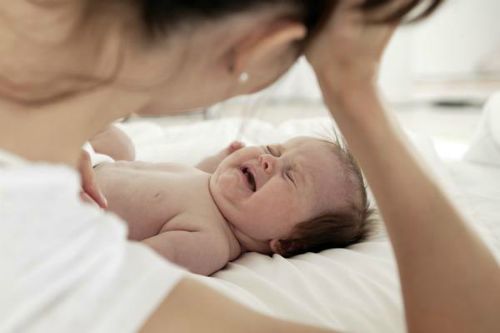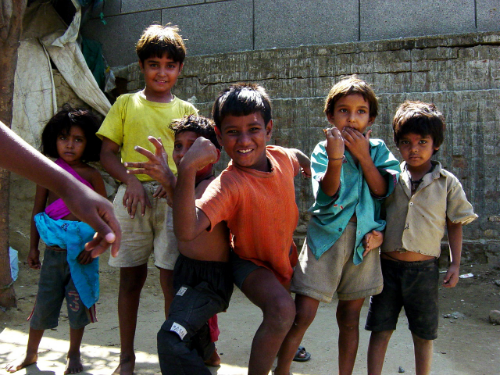Addictive Smokers Terrorize “Forced Poverty” in Children: Study
Addictions are becoming worse these days with addictive parents willing or (rather hypnotized by their addictions) to fund their killing habit of smoking for instance, but not their children’s basic necessities to survive. “Smoking reduces the income available for families to feed, clothe and otherwise care for their children living in low-income households,” said Dr. Tessa Langley of University of Nottingham’s UK Centre for Tobacco and Alcohol Studies while quoting facts from her new study published in BMC Public Health, an open access journal.
People, also in India, have become so doped by their smoking addictions particularly that they disavow their primary responsibility of looking after their family. They are surveyed to spend more to quench their burning thirst of the addiction and less for their children’s rightful needs of food, clothing, education, and entertainment. Several American studies have also come to the conclusion that the addiction is forcing smokers to spend less on housing expenditures compared to non-smokers.
The study calculated a horrifying figure of 4 lakh children being forced into poverty because of smoking. Dr. Langley also pointed out the urgency to set treating “smoking dependency” at top priority by government health services so as to eradicate childhood poverty and corresponding health issues.
Statistics testify! A mammoth child population of 1.1 million in UK, which is almost 50% of “poor” child population, lives with at least one parent fallen prey to smoking according to the new British study. Another 4,00,000 children are likely to be classified as poor if their parents reserve a part of their income for tobacco expenditure. If you think this is not the case in India then you’re awfully incorrect. Unfortunately or carelessly (however you want to put it), it’s eviler in our country.
While smoking is a known cause for keeping children deprived of parent’s love and quality healthcare as explained here, there are some unknown causes that could make children, especially infants, irate in certain episodes and give them painful experiences of uneasiness and physical discomfort such as colic.
Fussy Baby Making You Go Crazy? Tips to Deal with Colic
Here are some easy tips for parents to care for their colicky infants by Emily Sullivan, a birth doula and craniosacral therapist:
- Restrict napping periods: This particularly helps to avoid creating structural and postural imbalances
- Allow the tummy position: Provided it’s supported with supervision, this position will activate their rest and restore response (parasympathetic nervous system) and supply comfort
- Keep your home and the mother happy: No need to explain this. If your home environment is stressful and unhappy, both the mother and baby will express the discomfort. Don’t keep the mother lacking from meeting her needs
- Massage your baby: You could hire a chiropractor, craniosacral therapist, or an infant massage teacher to help your baby through massaging or teach you how to give that special, soothing massage for indigestion to him/her
- Try gentle methods too: It’s not necessary to always go for the tough methods. Homeopathic infant colic tablets, gripe water, or infant probiotics are also helpful measures to relieve your baby from tummy issues and/or colic
- Schedule a home visit: Arranging a postpartum specialist for a home visit could be a good bet to treat the whole family sometimes
Some babies are just plain sensitive than their fellow cradle partners. Colic does not necessarily need medical intervention; in most cases, it improves on its own. At the end of the day, they are just infants! You could say they come to give us thought-provoking messages about patience, love, and community.
Child Rights Right Out of the Window: 35 Million Need Help!
Amod K Kanth, chairperson of Delhi Commission for Protection of Child Rights (DCPCR), recently exclaimed the urgent need to socially integrate 35 million children and provide them with quality care and protection. If that number is enough to shock you, you may have to bear a little more because child healthcare in India is experiencing a downward arrow despite measures taken to hold the social, medical, and illiteracy attack on young India.
While the ‘Nirbhaya’ incident is still echoing loud in our ears, a yet another embarrassing number of 38,000 IPC crimes related to children (and juveniles) out of total 27,00,000-30,00,000 IPC crimes is making rounds on news portals. “Out of this, about 3-5 thousand serious crimes are committed by children,” added Kanth. It would be an ill-judged statement to push the blame on the government entirely; somewhere down the line, bad community influence, apathetic attitude towards parenting, superstitions, unethical cultures, etc. also have fueled the downgrading of child rights in the country.
This discussion would be incomplete if one of the greatest violations of child rights is not mentioned. It’s child marriage! Though we are proud to boast about having come along long after receiving independence, our country yet needs to find freedom from some of the biggest bondages connected to dominance on women, child labor, poverty, unemployment, and of course, child marriage.
Birth Control Chemicals Corrupt Parental Nature: Study
Endocrine-disrupting chemicals such as Bisphenol-A (BPA) are primary ingredients of any birth control medication. Past studies along with the recent research conducted by University of Missouri (MU) have proved that maternal care considering both female and male parents could be adulterated or decreased due to exposure to birth control chemicals.
The scientists performed the experiment using California mouse species as the hormones and brain regions regulating bi-parental behaviors are studied to be similar when compared to that of humans. After exposing both the male and female mice to three diets containing BPA, Ethinyl estardiol (EE), and the third being free of endocrine disruptors, the results indicated impaired nursing by both mice spending less time in the nest, away from their pups.
While this may not be the last cause of irresponsibility of parents towards their growing children, believing there are numerous other that keep adding to the list, we could take steps to set the right parenting example. But, who will lead? Will you?




